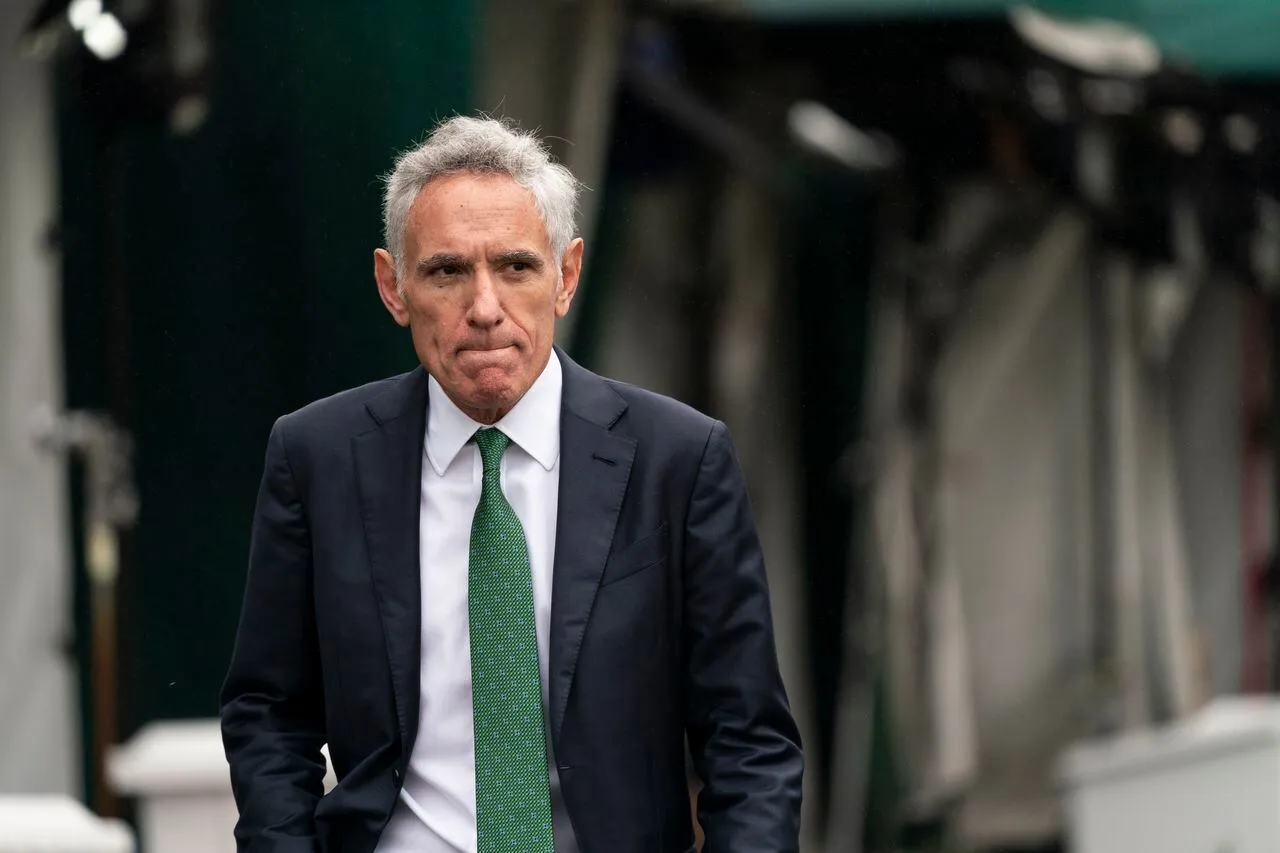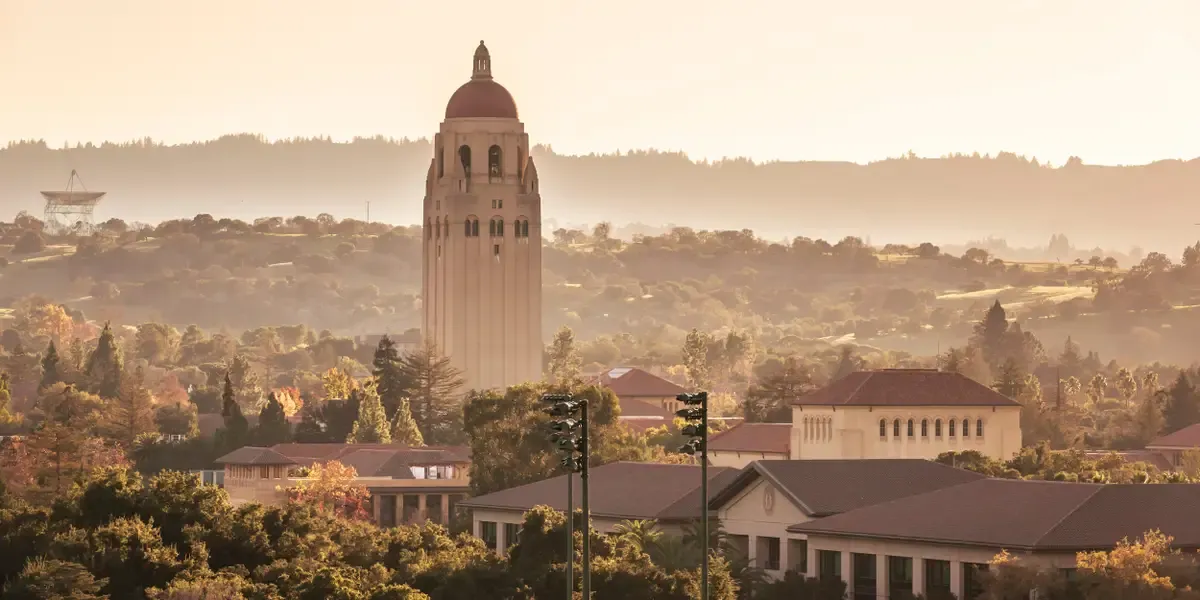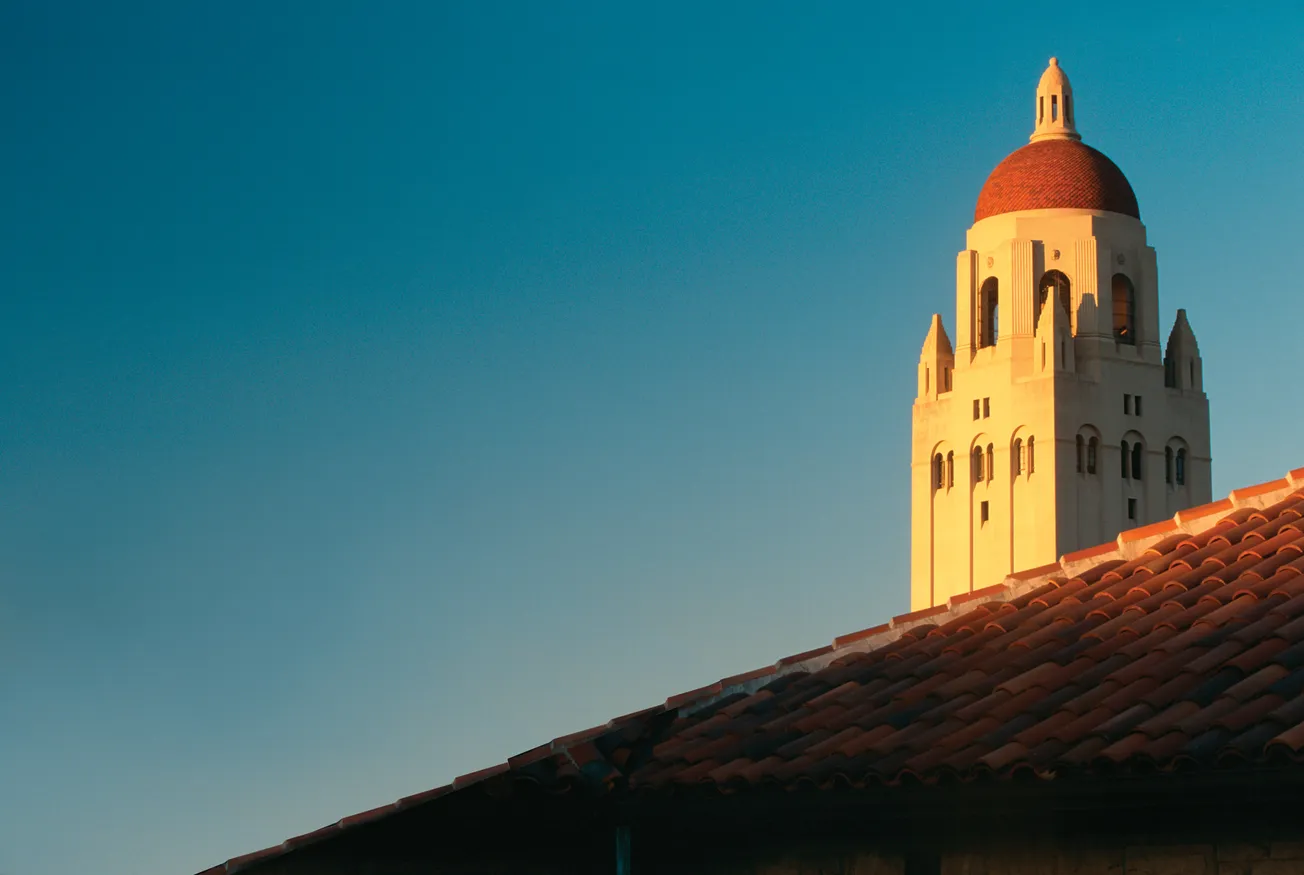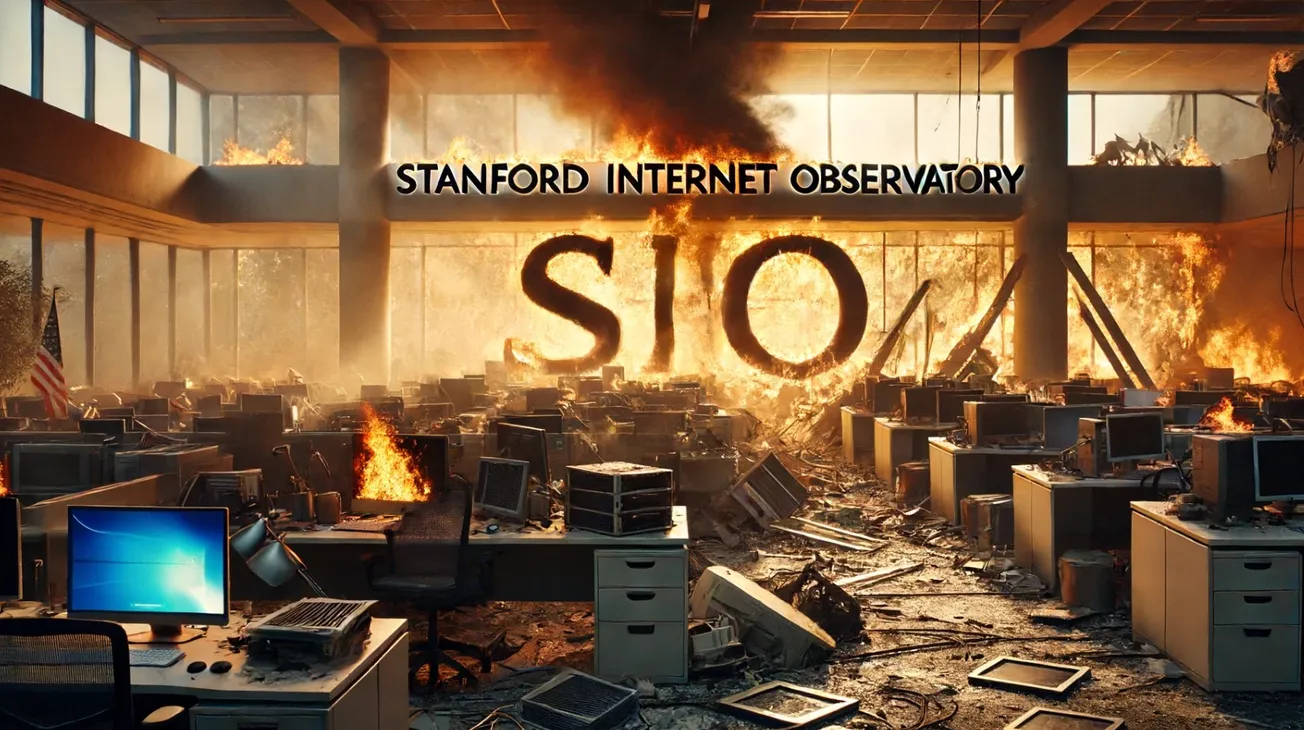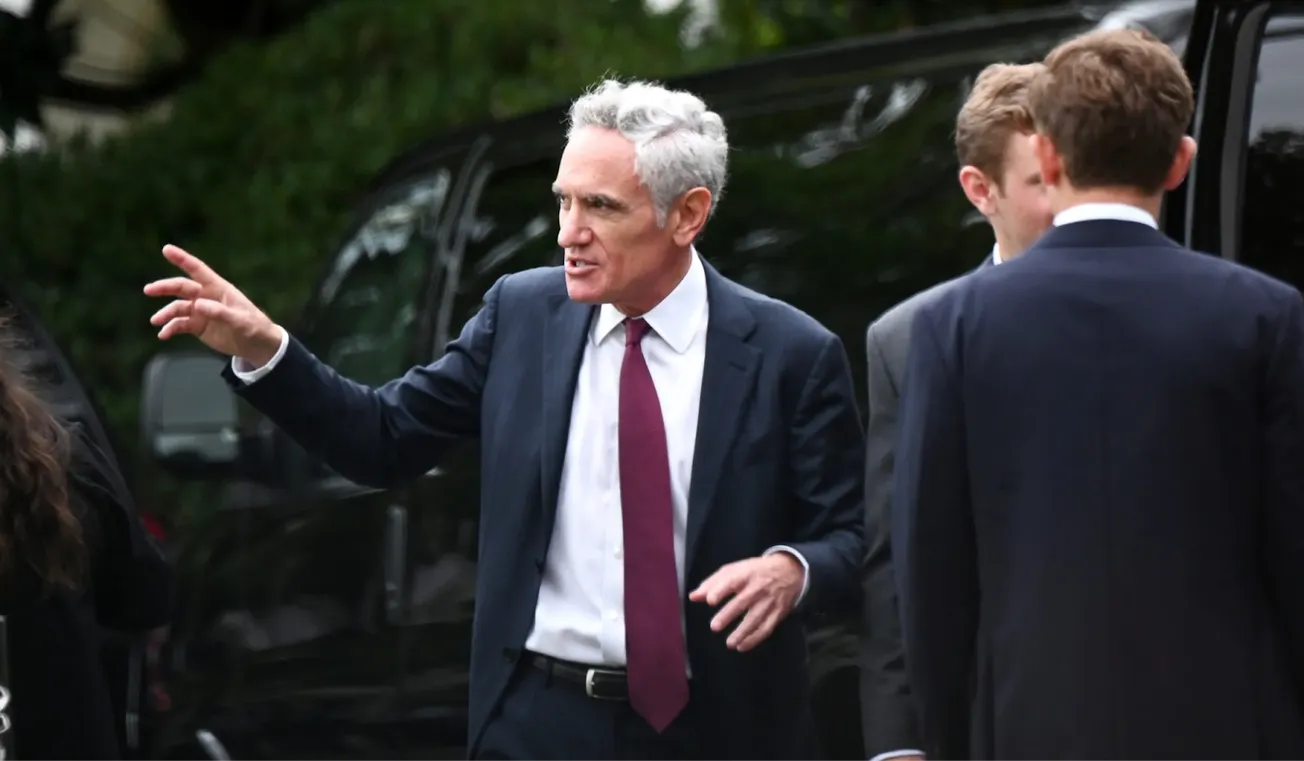Table of Contents
Stanford Review: Thank you so much for speaking with us today, Dr. Atlas. We’d like to discuss your experience with censorship at Stanford. Could you start by sharing your story and background leading up to the COVID-19 pandemic?
Scott Atlas: I’ve been in medical science for twenty-five years, MD from University of Chicago, then trained at Northwestern and UPenn, and I’ve been a professor at some of the world's best medical centers. I have a hundred-plus peer-reviewed papers as a clinician and as a medical scientist. I've given over six hundred invited lectures as a Visiting Professor, and received funding with more than thirty research grants. That was all pre-COVID.
I have also been an editor of journals and member of several editorial boards, among other things. For the past dozen years, I’ve been working in full-time health policy. I quit working at Stanford’s medical school in 2012 and moved over to the Hoover Institution as an endowed Senior Fellow in health policy.
This background is relevant because COVID-19—the pandemic and its management—was a health policy issue. Something like this is not to be run by someone with a limited scope of knowledge, like an epidemiologist or a virologist. It's for a health policy person who has significant medical science knowledge. That includes economics, public health, and science, which includes the delivery of healthcare and getting the best medical care and the best solution possible to the most people possible. For instance, we know from decades of economics literature that severe economic downturns kill people—particularly poor people.
Stanford Review: Tell us about what you did once the pandemic began.
Scott Atlas: I was working on a book on healthcare system reform in January and February 2020. Then the news started coming out about the pandemic and the virus, and completely incorrect knowledge and information was given to the public about the infection fatality rate by the World Health Organization.
They came out with a 3.4 percent fatality rate, which was clearly wrong because instead of including everybody infected in the calculation, they only calculated the fraction on the basis of anyone sick enough to seek medical attention. So they were grossly overestimating the fatality rate. Everybody who had a brain in medical science knew it.
In early March of 2020, there were lockdowns imposed. Those were the wrong policies, because they were going to kill by stopping other medical care and destroy people’s livelihoods but not stop the spread of the infection. Worse, they were going to disproportionately kill and destroy low-income families, poor people, and children.
That was true even in the era of the most lethal form of the virus in 2020. It was just ethically and morally repugnant, and incorrect policy, because they were trying to stop a virus at all costs without concern for the harms—severe harms—of the policy itself: the lockdowns, the school closures, and so on.
Not only was the policy incorrect, but it was also contrary to best practices of pandemic management. The 2006 seminal paper by Henderson on the subject of pandemic management for viral respiratory infections concluded two things: Lockdowns are ineffective at stopping the spread of a viral respiratory infection, and lockdowns are extraordinarily harmful.
Stanford Review: How did you become known as a public face of the anti-lockdown movement?
Scott Atlas: I got involved in doing research at the end of February and beginning of March 2020. Then, I started to do media interviews and writing and research on what I called “targeted protection,” which meant ending the lockdowns, opening the schools, but increasing the protection of the people who were at high risk to die. I was called in front of the U.S. Senate in May 2020 to testify. Between March and September, I wrote a series of pieces in the national media calling for an end to the lockdowns.
In July 2020, I was called up by the White House to come speak to President Trump. Completely wrong policies were being given to the president and to the country by the White House Coronavirus Task Force, which included the lockdowns and school closures and all those draconian mandates that were not protecting high-risk people. In fact, in the summer of 2020, half of the people who were dying were in nursing homes, which were already controlled environments. After speaking with him and others in the administration, they asked me to stay on as an advisor to the president.
In regard to the press, I think we all know that Trump was being attacked for his pandemic response. And so now I was being attacked 24/7 as well. I was shocked. I was sort of a fish out of water in Washington, but it was too important to be quiet. Of course it was, people were dying from the policies! When my position as the president’s advisor became public, all of a sudden I was attacked by Stanford, but more specifically by some of the members of Stanford’s faculty.
Stanford Review: What exactly happened to you at Stanford?
Scott Atlas: In September of 2020, I caught wind of emails being circulated inside the Stanford School of Medicine, where I had been a professor for fourteen years. These emails were being internally circulated, trying to drum up support to issue a very unprofessional statement about me, and encouraging Stanford Medical School faculty members to write attack pieces against me. These emails were not just unprofessional, but they were vicious attacks, making false analogies of my calling for targeted protection and stopping the destruction of poor people and children to things like the Tuskegee syphilis experiments and eugenics.
They didn't cite any data. They just made these wild distortions of what I was saying. Their conduct was not only unprofessional, but it didn't even meet my standards of basic human civility.
Remember, censorship in academia is very nuanced. It takes many faces. It's not simply firing someone; it's more than that. When you overtly and publicly try to delegitimize someone, that is a form of harassment. Intimidation to silence someone is a form of censorship. But it doesn't work on people like me. I'm far more concerned with people dying than with what other Stanford people think of me. I don't care at all about that. People who worked with me—who were writing articles to defend me—were told to stop writing articles. That's censorship.
More importantly, this intimidation, smearing, defamation, really is effective on other people.
I think what the faculty didn’t realize about me was that they were not going to intimidate me.
They didn’t understand my motivation—that people were dying because of the lockdowns.
I also received thousands of very emotional emails from people all over the world, including people whose husbands had killed themselves because of the lockdowns, or whose daughters had tried to kill themselves. They begged me to keep speaking the truth.
The absurd notion was that a statement from impotent professors at Stanford Medical Center could stop me from helping those people. But people were relying on me. I didn't realize that in the very beginning. So many people were desperate to have people like me speak the truth. In those emails from people were statements like, “Please keep talking, because we want you to help save other people from what happened to my loved one.” The lockdowns that caused this massive damage went far beyond what the infection itself did—I had published that data in spring of 2020.
Stanford Review: How were you ultimately censored by the University?
Scott Atlas: The most important censorship was done in 2020. That included not just academic censorship, but also censorship by public media, much of which was instigated by Stanford’s defamatory statements. First of all, the Stanford School of Medicine widely distributed in public a letter in early September 2020, which was full of defamatory statements and no data whatsoever. The administration had posted it on the Stanford Medical School website, and they were forced to pull it down and reprimanded.
Later in November, the Stanford Faculty Senate formally censured me. Stanford's name lent credibility to that delegitimization. It went viral in the news media in late 2020 that Stanford had tried to censor me. I also hold them partly responsible for death threats I received and subsequent significant financial harms.
Here’s the issue. Universities are supposed to be the centers for the free exchange of ideas. It's dangerous in my view that these campuses have turned into places where the professors are totally intolerant of views they don't agree with.
Why do I say political bias was part of this? Three medical scientists at Stanford said the same things: that masks don't work, that schools should open, that children are at extremely low risk, that biological protection was generated by having had the infection, and that lockdowns are extremely harmful: John Ioannidis, Jay Bhattacharya, and myself. Yet only one of us received an official censure. Why? Because I stood next to the president, a president who the University faculty didn't approve of.
That censure was wild, unhinged, and frankly ridiculous. No factual data was given in support. It was just a statement by people who apparently knew nothing about the data but were extremely agitated, presumably for political reasons. But also, by this point, they were wedded to their obsession with false ideas about COVID-19. And of course, everything I said was one hundred percent correct.
So, there was a meeting of the Faculty Senate. I wasn't there, of course.
But that censure is a black mark on Stanford, as far as I'm concerned. We entrust professors in universities with these exalted positions of teaching our young people and the next leaders of our country. They abjectly failed as role models. No facts whatsoever, just unhinged rants because they disagreed. That's not what we want professors to teach students. Arguments are won based on evidence and rational discussion, not this sort of behavior.
I think Stanford really failed the public during the pandemic. It is a fraud when Stanford says it stands for academic freedom. And I think the University’s behavior should raise the question of why parents would spend a quarter of a million dollars to educate their children in places like this one.
I think that censorship culture needs to be fixed in a very aggressive way. But the first step to restoring trust is apologizing for Stanford’s mistake. I think we all know this to be true in our personal lives. They should admit error—not just on the basis of academic freedom, but also because what they were saying about pandemic management was wrong. The data shows that I was one hundred percent correct, period.
I still think there are a lot of good people at Stanford—it’s just that most are cowards. We need more people with the courage to step forward and tell the truth. Or we will have failed our nation and our children.
This interview has been revised for length and clarity.

